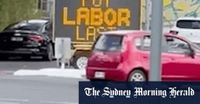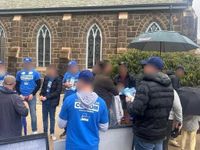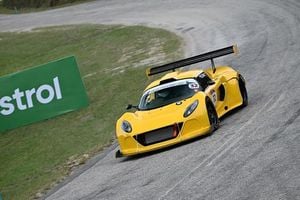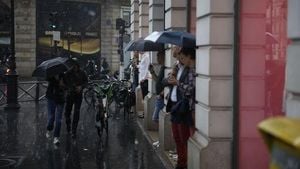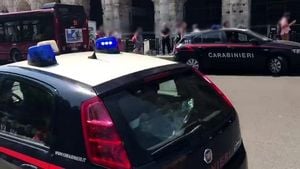In a surprising twist to the ongoing election campaign in Australia, both Labor and independent candidates have raised concerns over the apparent involvement of the Plymouth Brethren Christian Church, a secretive Christian sect, in supporting the Coalition's candidates. The church, often referred to as the Exclusive Brethren, has around 15,000 members in Australia and has been accused of mobilizing its members to volunteer for Liberal Party campaigns, particularly in key marginal seats.
On April 29, 2025, independent MP Andrew Gee, who is contesting the National Party for his seat in Calare, publicly called for transparency from the Coalition regarding the support it has received. "I think the National Party has to answer what they're giving in return for all of this support they're getting on the ground. And you can't pretend to turn a blind eye to this," he stated, questioning whether there is an agreement with the Brethren and what the terms might be.
Reports have surfaced indicating that members of the Plymouth Brethren have been seen in unusually high numbers volunteering at pre-poll booths, ostensibly to assist Coalition candidates. However, the church has denied any formal organization of support for political campaigns, asserting that while individual members are free to volunteer, the church itself does not engage in political activities. Church spokesperson Lloyd Grimshaw emphasized, "Our church does not campaign for, nor support, any political parties and have not organised or coordinated any volunteer efforts of any type in any location. However, we are anecdotally aware that parishioners from our church have decided to volunteer this year for a variety of candidates from the Liberal Party, teals, Nationals, One Nation and Labor, amongst others."
Despite the church's denial, there are allegations that the Brethren's involvement may extend beyond mere volunteering. Text messages reportedly circulated within the church suggest a level of coordination among members on how to respond to inquiries while working at polling booths. These messages advise members to avoid discussing their church affiliation and not to engage in lengthy conversations.
The situation has drawn scrutiny from various political figures, including Prime Minister Anthony Albanese, who expressed skepticism about the sudden enthusiasm of Brethren members to campaign. He questioned, "Where are all these people coming from? Why are they campaigning?"
Opposition Leader Peter Dutton, on the other hand, has defended the Coalition's stance, stating that the party welcomes supporters from all faiths and does not discriminate based on religion. "We're not discriminating against anybody on the basis of their religion. We have people of, I suspect, every religion supporting us," he said.
In a somewhat related development, electronic billboards have emerged across crucial electorates, echoing messages associated with the Plymouth Brethren, including slogans like "Make Australia smile again" and "Make Australia Happy!" These advertisements, linked to a newly established group called Australian Firebrand, have raised further questions about the church's influence in the political arena.
Australian Firebrand, which was founded in April 2025 by Edwina Bull, has been identified as a key player in the current campaign, advocating for voters to put Labor last on their ballots in the upcoming election on May 3. The group’s social media presence is minimal, with only 23 likes and 52 followers on Facebook, raising suspicions about its legitimacy and funding sources.
Former Brethren member Ben Woodbury, who left the church nearly a decade ago, has expressed surprise at the scale of the church's involvement in this election cycle. He noted that while the church has historically been politically active, the current mobilization of members appears unprecedented. "We were always involved, volunteering and handing out pamphlets — it was always kind of secretly done after hours — it was always kind of under wraps," he recalled.
Furthermore, allegations have surfaced regarding the behavior of Liberal volunteers at polling booths, with some claiming that Brethren members have engaged in intimidating tactics against voters and rival campaigners. Jill Hall, a former MP and Labor stalwart, reported witnessing aggressive behavior from Liberal Party workers, particularly young men, who were allegedly blocking voters and making offensive remarks. "Groups of aggressive Liberal Party workers, particularly young men, intimidating volunteers and making offensive comments to voters," she described, adding that several voters had approached her with complaints about feeling intimidated.
As the election approaches, the implications of the Plymouth Brethren's involvement in political campaigning remain uncertain. Both the Coalition and the church have denied any formal arrangements, yet the evidence of coordinated efforts and the sheer number of volunteers raises significant questions about transparency and ethics in the electoral process.
With the election just days away, the spotlight is firmly on how these dynamics will influence voter behavior and the overall outcome. As independent and Labor candidates continue to press for clarity, the Coalition's response will be crucial in addressing the concerns surrounding the Brethren's involvement and maintaining public trust in the electoral process.
